
Styphnolobium japonica ‘Regent’ Honingboom Boomkwekerijen M. van den Oever & Zonen
Scientific name: Sophora japonica Pronunciation: sah-FOR-uh juh-PAWN-ih-kuh Common name (s): 'Regent' scholar tree, 'Regent' Japanese pagoda tree Family: Leguminosae USDA hardiness zones: 5B through 8A (Fig. 2) Origin: not native to North America Outstanding tree: yes Invasive potential: little invasive potential

sophorajaponicaregent Street trees, Japonica, Tree
Sophora japonica 'Regent'. AKA Styphnolobium japonicum Regent. Upright, oval to rounded crown. Pinnately compound leaves are glossy green in the summer. Long pendulous strings of white flowers. Flowers are followed by slender bean-like seed pods. Bloom Time: August.

Sophora japonica 'Regent' SOFORA Vivai Frappetta Roma
Sophora japonica 'Regent' Back to Plant Finder . Sophora japonica 'Regent' Locate. 42.15175247, -87.78947449. 42.15177155, -87.78941345. Regent Japanese Scholar Tree Plant Type: Tree. Hardiness Zone: 4 - 8 Close Modal 1000 Lake Cook Road Glencoe, IL 60022. Directions. Open Today, January 3, 2024.
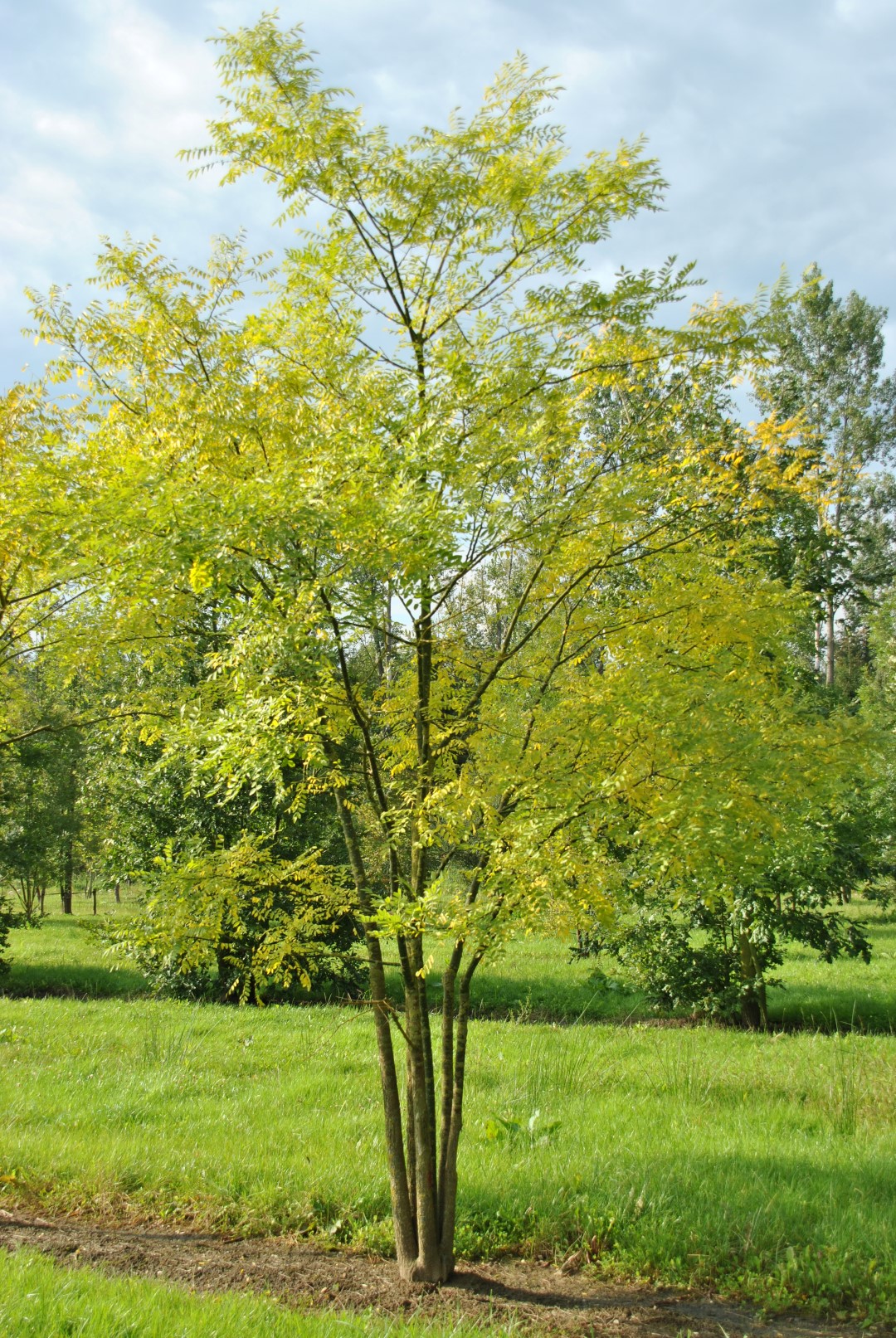
Styphnolobium japonicum 'Regent' Styphnolobium japonicum 'Regent' Van den Berk Pépinières
The Japanese pagoda tree is a showy, medium to large, deciduous flowering tree that is a member of the Fabaceae or pea/legume/bean family. It has a rounded crown and grows to a height of 50 to 75 feet and is equally as wide. It is grown for its attractive green foliage and fragrant summer flowers.

Sophora japonica 'Regent' / Schnurbaum 'Regent' günstig kaufen
Sophora japonica ( Regent Sophora ) 'Regent' is an elegant, fast-growing deciduous tree with a large, round to oval crown. It can grow up to 75 feet tall and wide. Leaves are pinnate to 10 inches long, each with 17 ovate, glossy, dark green leaflets which turn yellow in the fall. Creamy white, small, fragrant, pea-like flowers, to 1/2 inch.

Schnurbaum Regent Sophora japonica Regent günstig kaufen
Sophora japonica 'Regent' Additive. Selected by PRINCETON Nurseries, USA, 1964. WHZ. WHZ 6a . Distribution. China, Korea, in Japan only cultivated.. dry to moist soils, mildly acid to strongly alkaline. Sophora is very undemanding and thrives even on very dry, poor sites. Characteristics. When juvenile susceptible to damage by late frost.

PagodenSchnurbaum Sophora japonica 'Regent' gelb
Styphnolobium japonicum, the Japanese pagoda tree [3] (also known as the Chinese scholar tree and pagoda tree; syn. Sophora japonica) is a species of tree in the subfamily Faboideae of the pea family Fabaceae . It was formerly included within a broader interpretation of the genus Sophora.

Grote Honingboom (Sophora japonica 'Regent') Directplant
The Japanese pagoda tree ( Sophora japonica or Styphnolobium japonicum) is a showy little shade tree. It offers frothy flowers when in season and fascinating and attractive pods. The Japanese pagoda tree is often called the Chinese scholar tree.

Sophora japonica "Regent" Gartenwelt Scheller Die Baumschule im Süden von München
Introduction. Many different factors may determine plant invasiveness. At the level of particular functional traits, high phenotypic plasticity and high phenotypic integration have been hypothesized as potential factors promoting invasion success (Pigliucci & Preston, 2004; Hamilton et al., 2005; Richards et al., 2006).After decades of research, information about plant traits associated with.
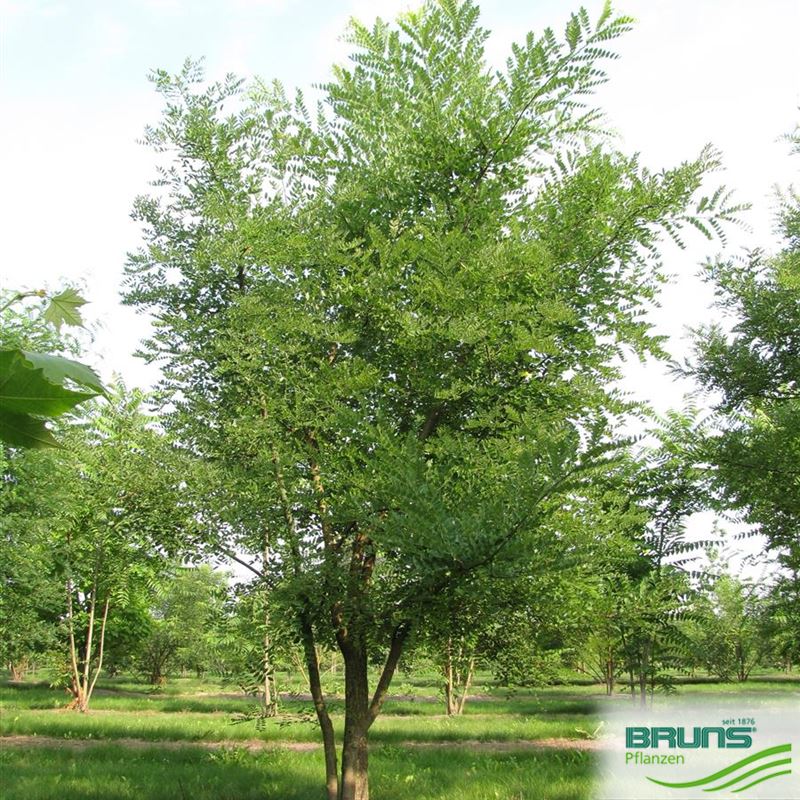
Sophora japonica 'Regent' von Bruns Pflanzen
Sophora japonica 'Regent' Japanese Pagoda Tree Deciduous tree. Fast growing. Rounded canopy has lacy effect and filtered light. Medium-sized medium-green oval leaflets. Clusters of small creamy white flowers in summer, followed by pods that resemble a string of beads. Botanical Name: Sophora japonica 'Regent' Common Name: Japanese Pagoda Tree
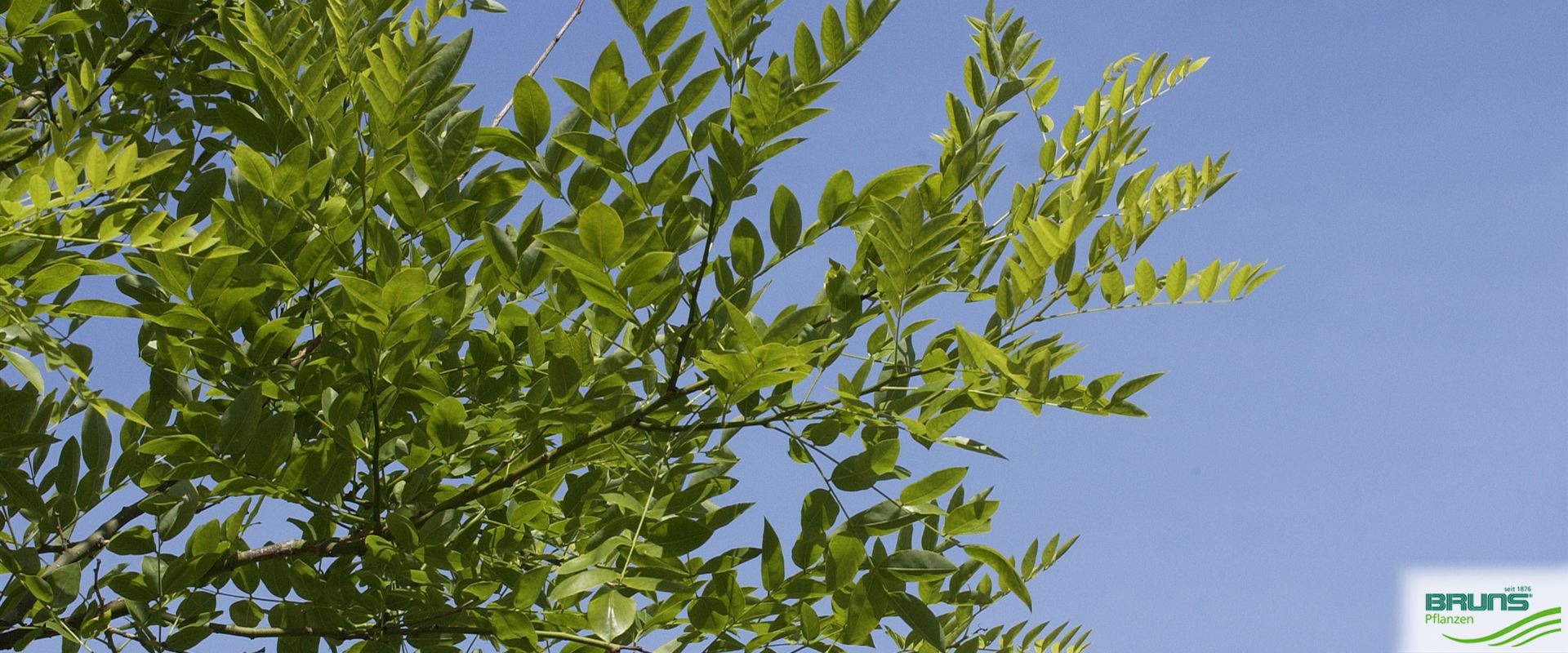
Sophora japonica 'Regent' von Bruns Pflanzen
In order of abundance, the main plant species that make up the urban trees of Madrid and that account for 75% of the total are Pinus pinea L., Quercus rotundifolia Lam., Pinus halepensis Mill., Ulmus pumila L., Platanus hispanica (Aiton) Willd, Cupressus arizonica Greene, Sophora japonica L., Robinia pseudoacacia L., Celtis australis L., and.

Sophora japonica "Regent" Vrtni center MOGA
Sophora japonica Fact Sheet ST-592 October 1994 Sophora japonica Figure 1. Middle-aged Scholar Tree. Scholar Tree1 Edward F. Gilman and Dennis G. Watson2 INTRODUCTION Sophora species grows to a height of 40 to 60 feet and spread of 30 to 45 feet, forming a fine-textured, round canopy even as a young tree (Fig. 1).

Sophora Japonica Regent Zambelli Vivai s/O
Sophora japonica, commonly called Japanese pagoda tree or Chinese scholar tree, is native to China and Korea, but not Japan. It is a medium to large deciduous tree that typically matures to 50-75' (less frequently to 100') tall with a broad rounded crown.
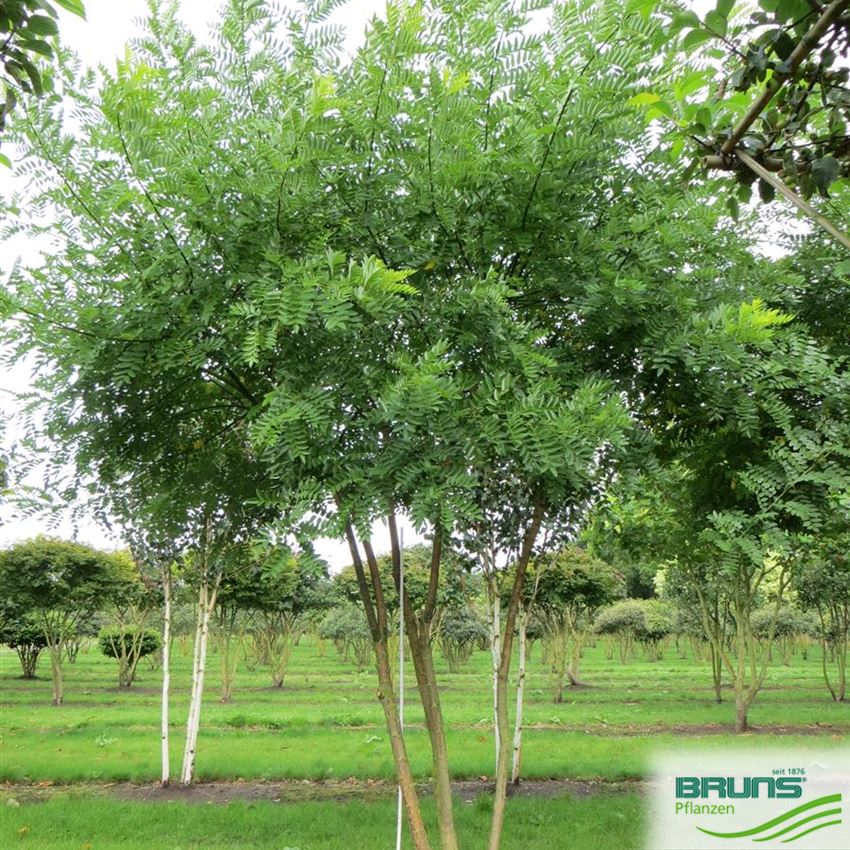
Sophora japonica 'Regent' von Bruns Pflanzen
Regent Japanese Pagoda Tree is recommended for the following landscape applications; Accent; Shade; Planting & Growing. Regent Japanese Pagoda Tree will grow to be about 50 feet tall at maturity, with a spread of 45 feet. It has a high canopy with a typical clearance of 6 feet from the ground, and should not be planted underneath power lines.

Styphnolobium japonicum 'Regent' Styphnolobium japonicum 'Regent' Van den Berk Baumschulen
DESCRIPTION Height: 40 to 50 feet Spread: 30 to 40 feet Crown uniformity: symmetrical canopy with a regular (or smooth) outline, and individuals have more or less identical crown forms Crown shape: round Crown density: moderate Growth rate: fast Texture: fine 1.
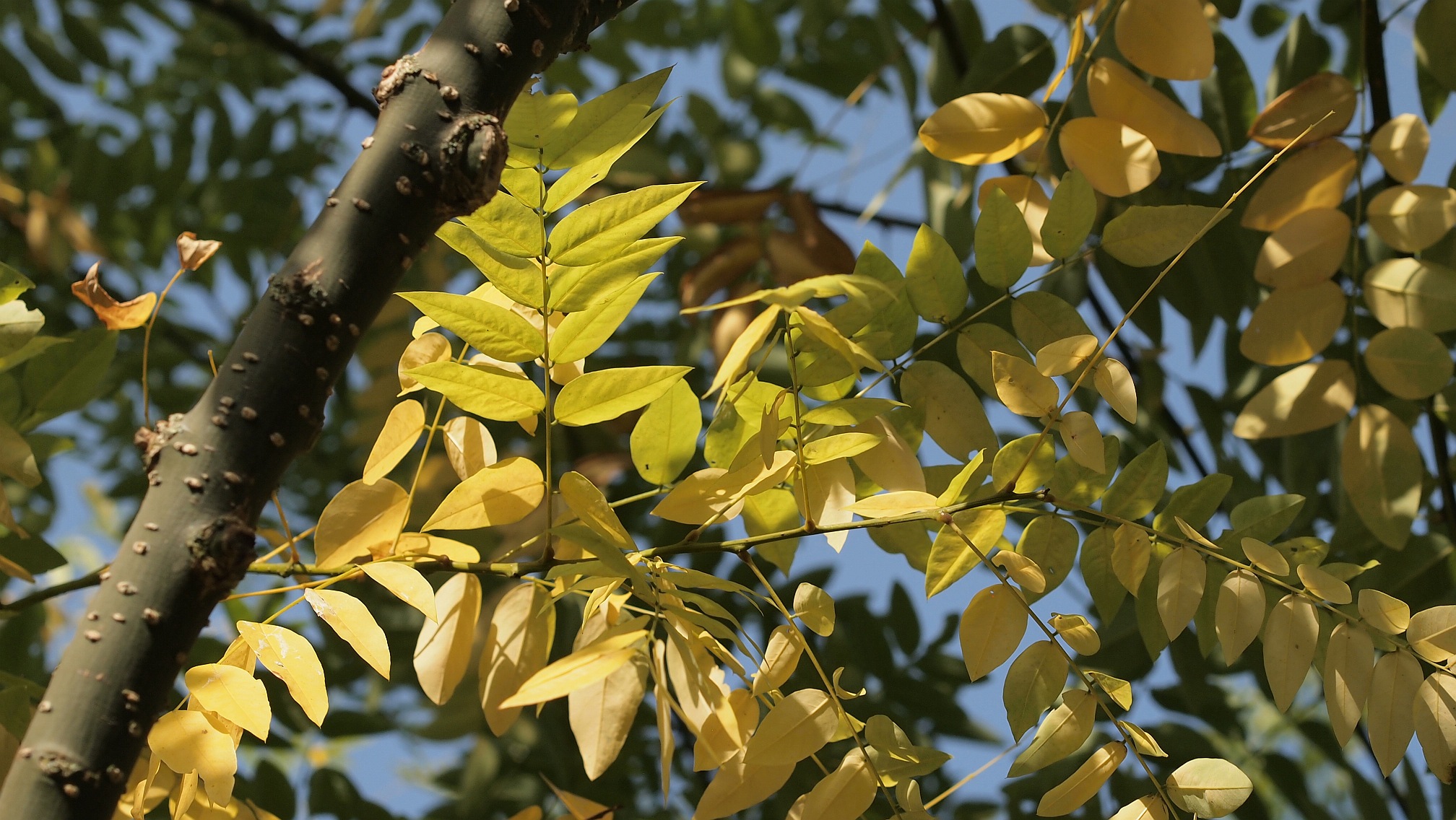
UDENHOUT TREES Styphnolobium japonicum 'Regent'
Introduction. Sophora species grows to a height of 40 to 60 feet and spread of 30 to 45 feet, forming a fine-textured, round canopy even as a young tree. It has a rapid growth rate and tolerates polluted city conditions, heat, and drought. The tree prefers a sunny, open location on any light soil. The very showy, greenish-white to yellow.